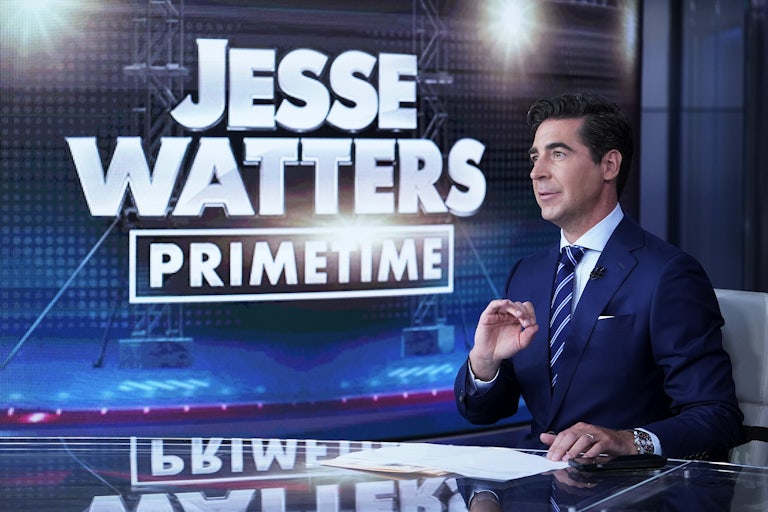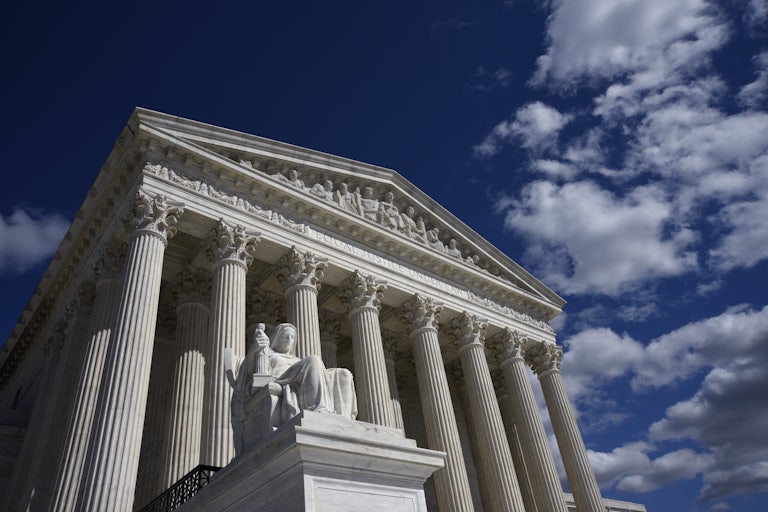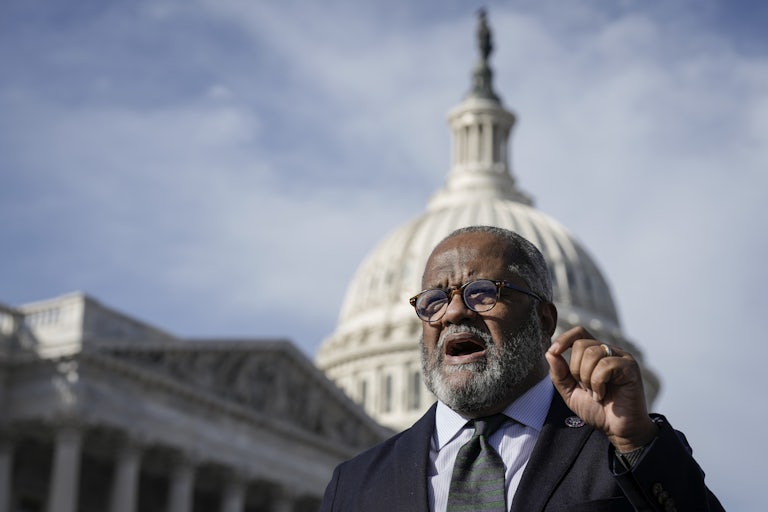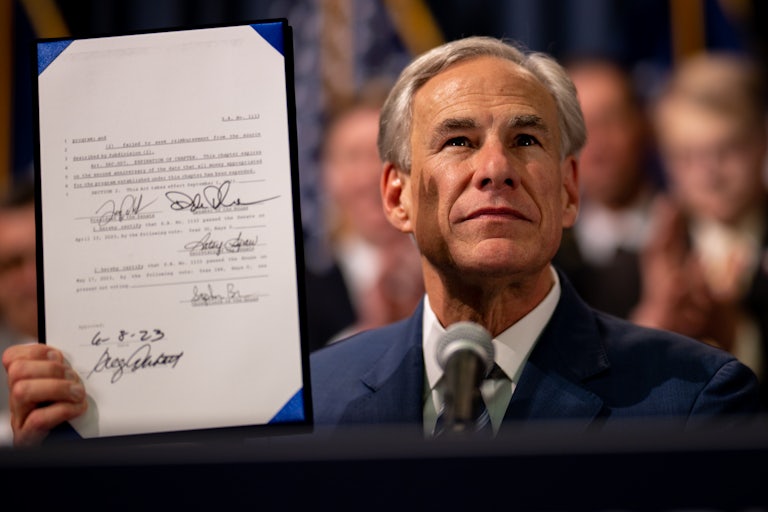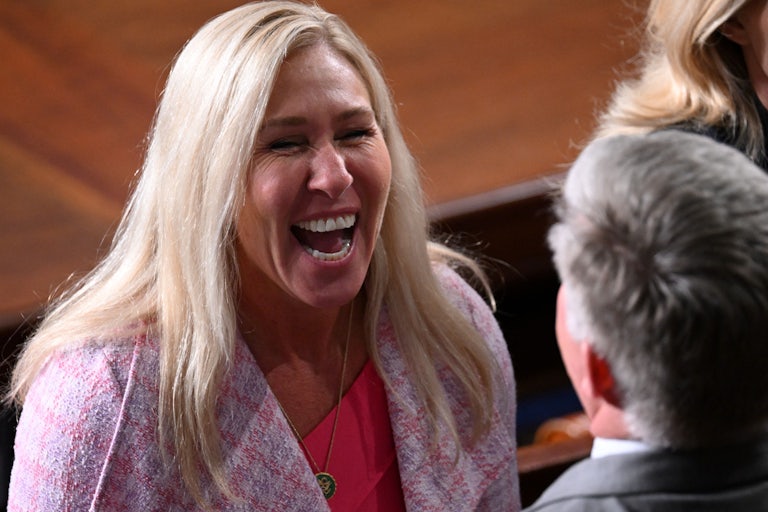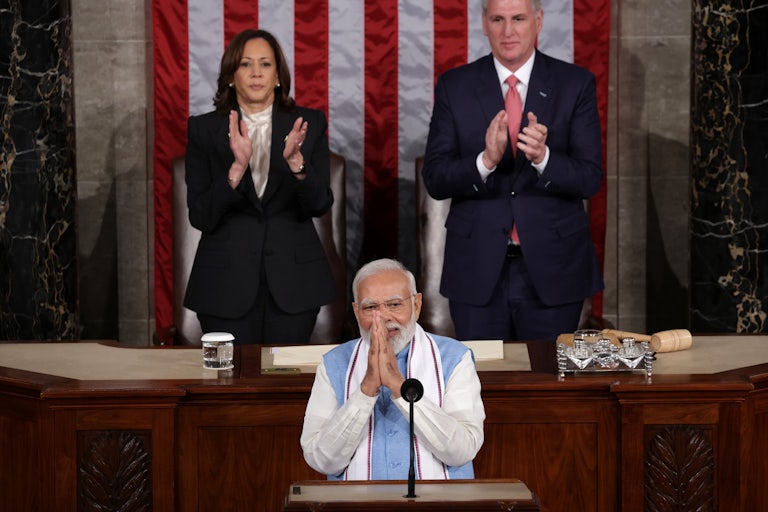Supreme Court Strikes Down Right-Wing Theory That Would Have Upended Elections
The ruling on the “independent state legislature theory” is a blow to election deniers everywhere.
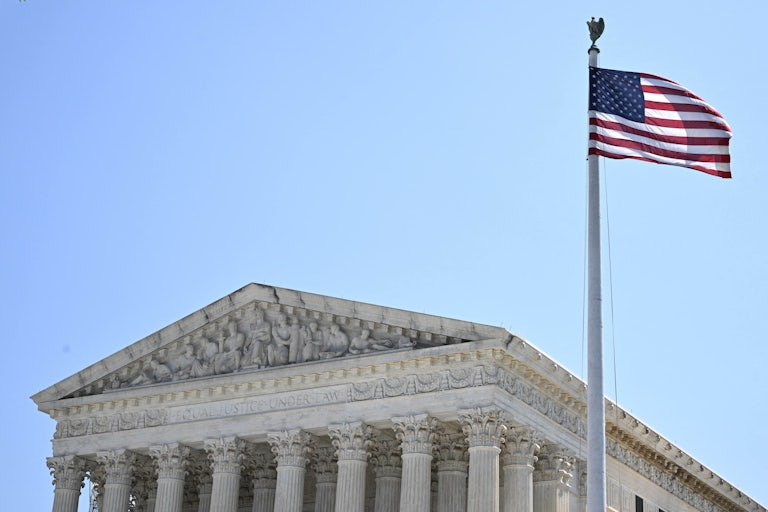
The Supreme Court on Tuesday struck down the controversial “independent state legislature theory,” in a serious win for democracy.
The court voted 6–3 in the case Moore v. Harper to knock down the fringe right-wing legal theory, which would have given state legislatures broad, virtually unchecked authority to oversee federal elections.
The Supreme Court had been asked in the case to decide whether North Carolina’s Supreme Court had the power to throw out the Republican-controlled legislature’s congressional maps.
Last year, the state Supreme Court deemed the maps an “egregious and intentional partisan gerrymander” meant to favor Republicans—and court-drawn maps were instead used for the 2022 election.
North Carolina Republicans argued that under the Constitution’s elections clause, the state legislature has the ultimate authority over election laws, not the courts, and they wanted their gerrymandered map reinstated.
But the Supreme Court handily rejected their argument, writing: “The Elections Clause does not vest exclusive and independent authority in state legislatures to set the rules regarding federal elections.”
Had the court ruled differently, election deniers throughout the country would likely be rejoicing. In its most extreme form, the independent state legislature theory could allow state legislatures to bypass state courts and governors’ vetoes when it comes to election law, giving them virtually unchecked authority with no checks and balances. It could even allow state legislatures to certify presidential electors who were not approved by the voters. Unsurprisingly, the theory was one that Donald Trump and his allies used to try to overturn the 2020 election.
This story has been updated.
